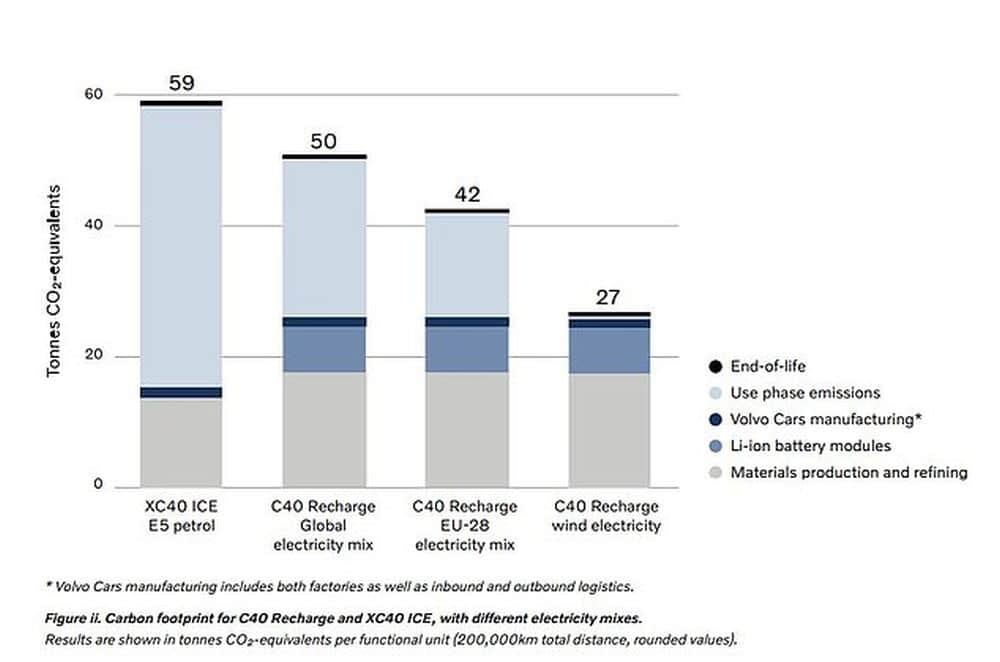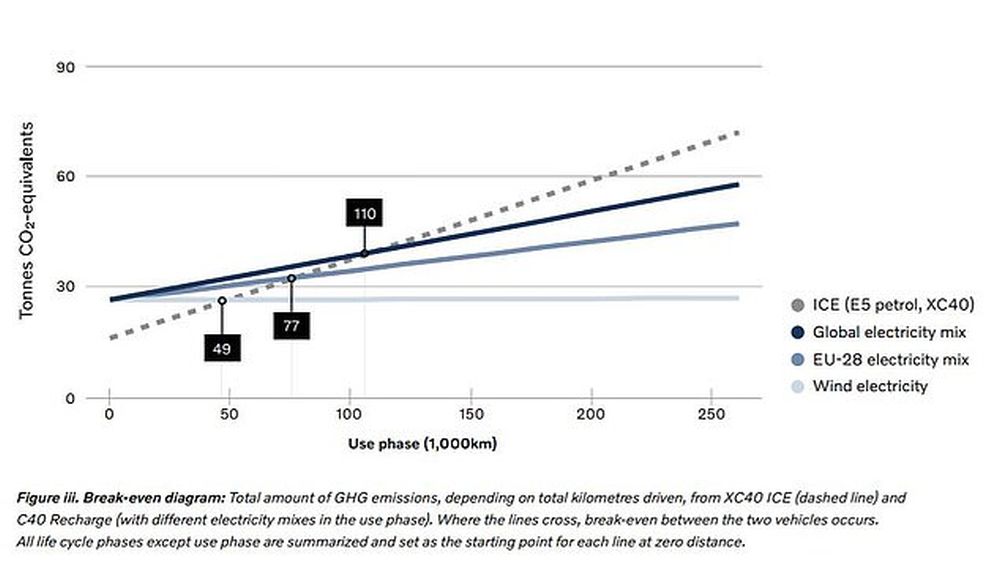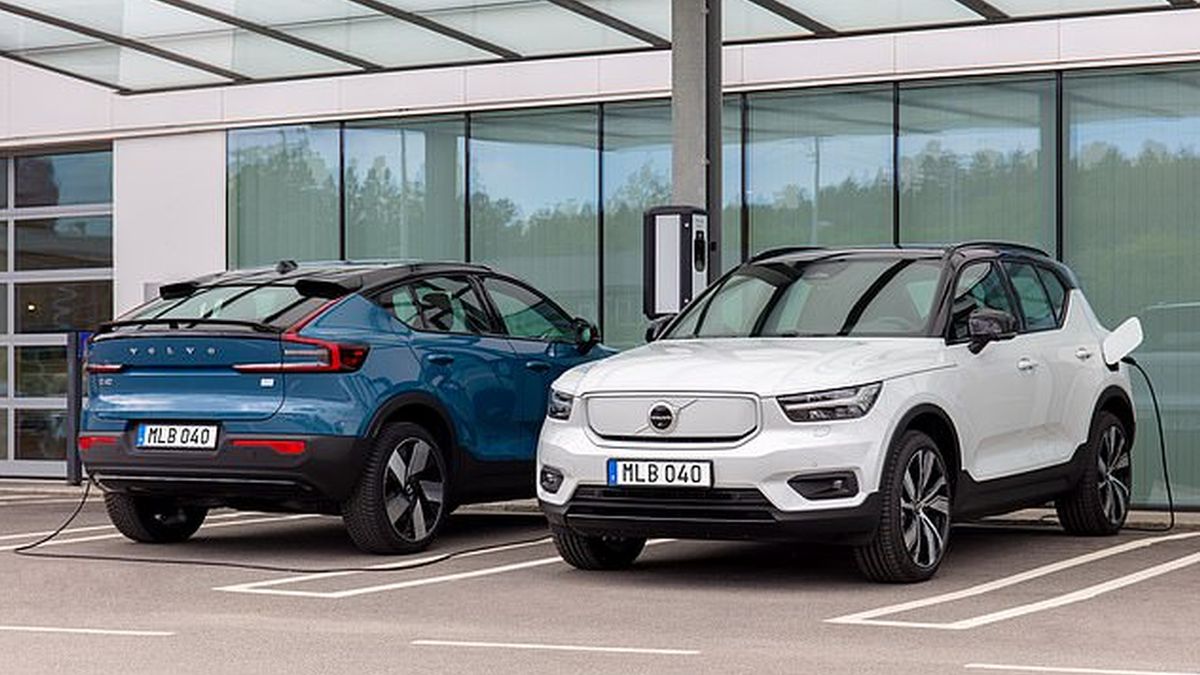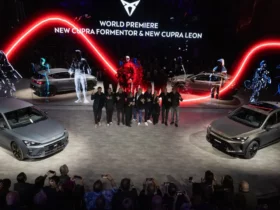Volvo recently launched the campaign #ZeroOmissions where he states, somewhat surprisingly, that the emissions deriving from the production of an electric vehicle are far higher than those of the petrol equivalent. From this statement, which certainly leaves you stunned, the Swedish company invited world leaders attending COP26 and energy suppliers to significantly increase investments in green energy to reduce the carbon footprint of EV models.
Estimates come from Volvo’s UK subsidiary, which said that over the life of a car the electric version will become greener overall, although this goal it will be reached only after having traveled between 50,000 and 110,000 km, taking between four and nine years for the average UK motorist.

The Swedish house reveals that greenhouse gas emissions during the production of the electric vehicle they are almost 70% higher than a petrol model, which is mainly due to the carbon intensity of the battery and the steel production, as well as the higher proportion of aluminum used in the electric model.
But Volvo said that as an electric vehicle its C40 Recharge has a much lower carbon footprint than its petrol version, comparable during the “use phase”, although it suggests it would take an extended period of ownership before compensating. the higher emissions deriving from its production.
When clean energy, such as wind power, is used, the lifecycle CO2 footprint of Volvo’s new electric SUV that’s about 27 tons, compared to 59 tons for an XC40 compact SUV powered by a combustion engine.

However, when drivers recharge their C40 Recharge using an energy mix (about 60% generated from fossil fuels), the car’s lifecycle CO2 tonnage can increase to 50, significantly reducing the environmental benefits compared to a combustion car.
Volvo has estimated that an electric Volvo C40 it must be driven for around 110,000 km to have a lower total carbon footprint than its petrol equivalent, if the former is powered by the current “not totally green” electricity mix.
Based on the latest UK driving statistics, the average annual mileage is 11,000 kilometers. This means it could take nine years or more of ownership before the EV is greener than a car with an internal combustion engine, according to Volvo UK estimates.
However, it could offset its higher production emissions in just 48,000 kilometers (four years of driving) if loaded with electricity generated by the wind.
Experts disagree with Volvos’ estimates of emissions from an electric vehicle
Experts have contested – and criticized – the Swedish manufacturer’s estimates, stating that it will only take 26,000 kilometers or just over two years of driving, for the electric C40 to surpass a petrol equivalent in terms of emissions.
For an automaker to make such bold claims that they somehow undermine the green credentials of its new – and expensive – vehicle is nothing short of courageous, especially when everyone (or almost everyone) claims that the turning point to reduce the production of CO2 in the air is to switch entirely to electric vehicles
Volvo says the goal of disclosure of the reports and campaign #ZeroOmissions is to encourage government leaders to make improvements so that all electric cars can “Offer their true potential in terms of climate benefits”. The Swedish automaker said that if this is done, electric vehicles built and charged using clean renewable energy will have enormous potential to substantially reduce CO2 emissions.
Håkan Samuelsson, chief executive of Volvo Cars, said: “We have made the conscious strategic decision to become an all-electric car manufacturer and an industry leader, but we cannot go climate neutral on our own. We need governments and energy companies around the world to increase their investments in clean energy capacity and related charging infrastructure so that fully electric cars can truly deliver on their promise of cleaner mobility. “
The report highlights that during the C40 Recharge life cycle for the production of lithium-ion batteries and due to the consistent presence of aluminum, these each account for about 30% of the total carbon footprint on all vehicle materials and components.
Volvo says it is already taking active steps to address these emissions, including through planned collaborations to develop fossil-free steel and, with its battery suppliers, to produce models using 100% renewable energy.
The Swedish company, now owned by the Chinese group Geely, has already outlined its goals to become a fully electric car manufacturer by 2030. Part of his plan is to launch a new family of all-electric cars in the coming years, in one of the industry’s most ambitious electrification programs. The project also includes plans to become a climate-neutral company by 2040.
















Leave a Reply
View Comments